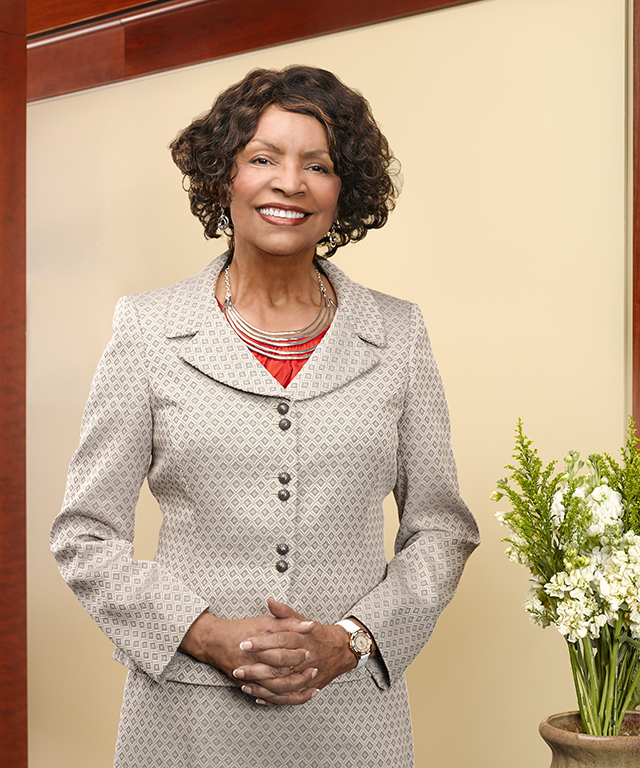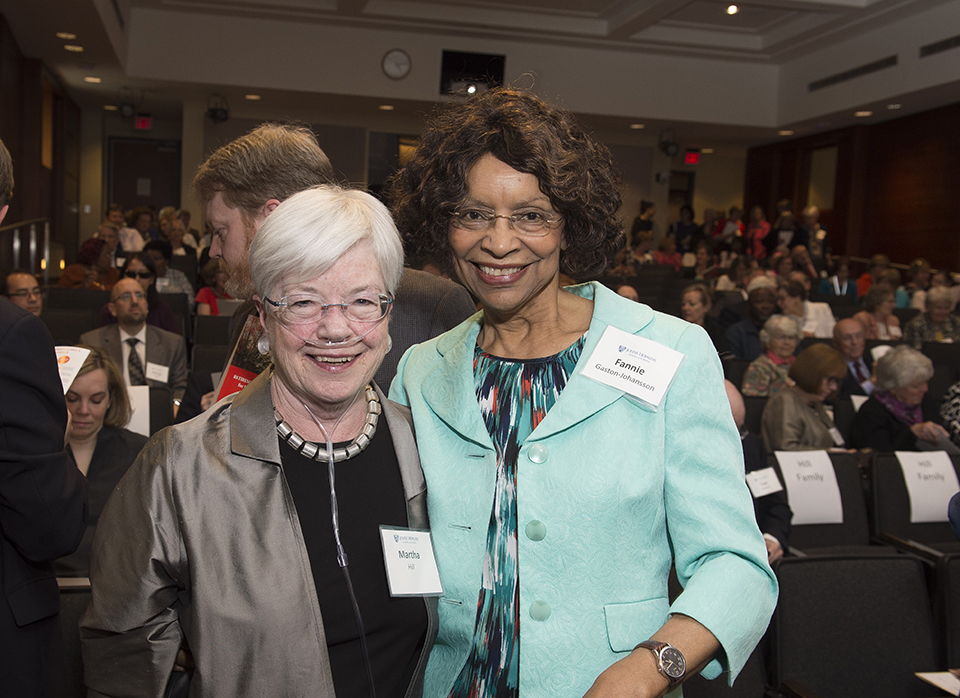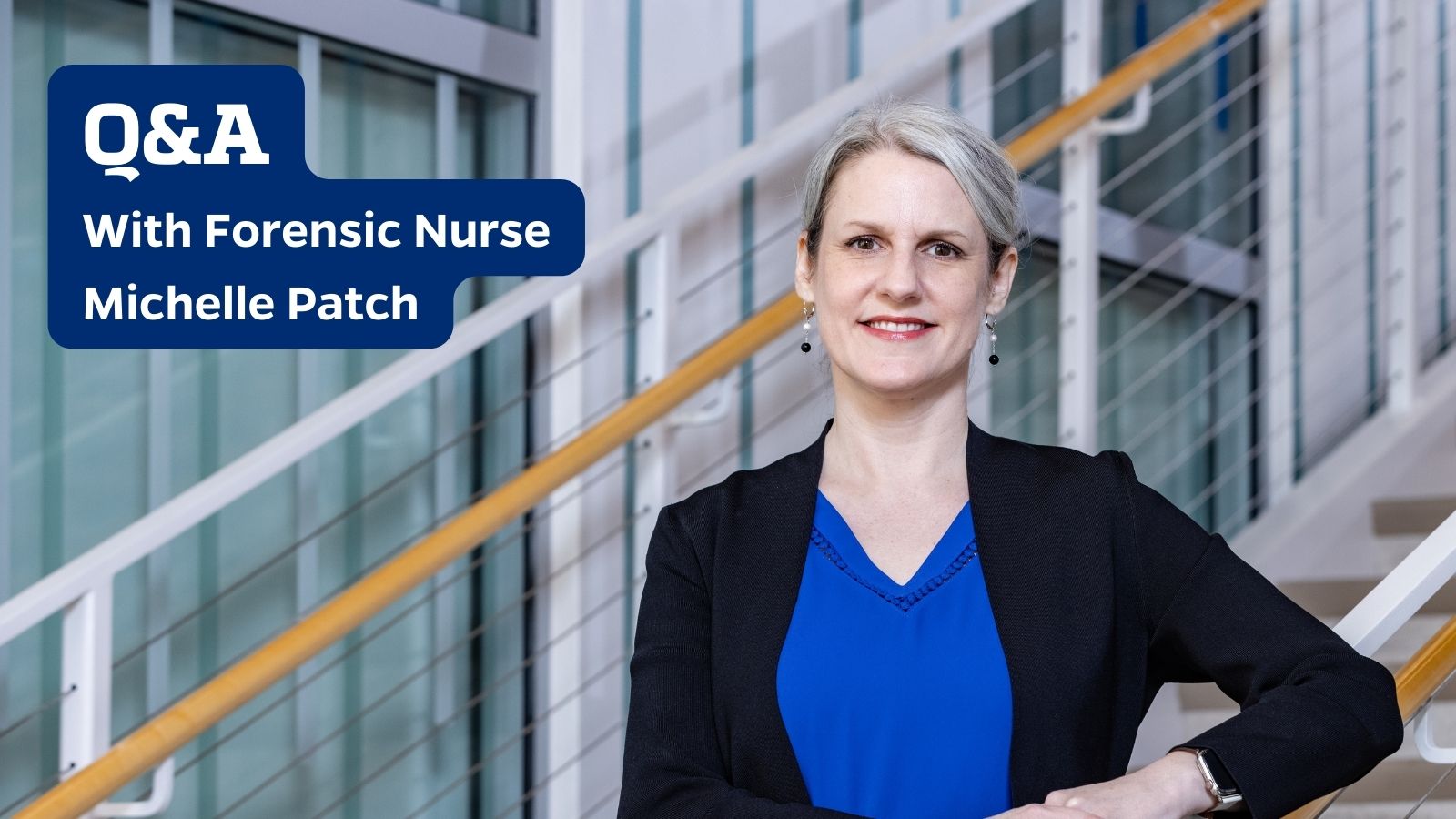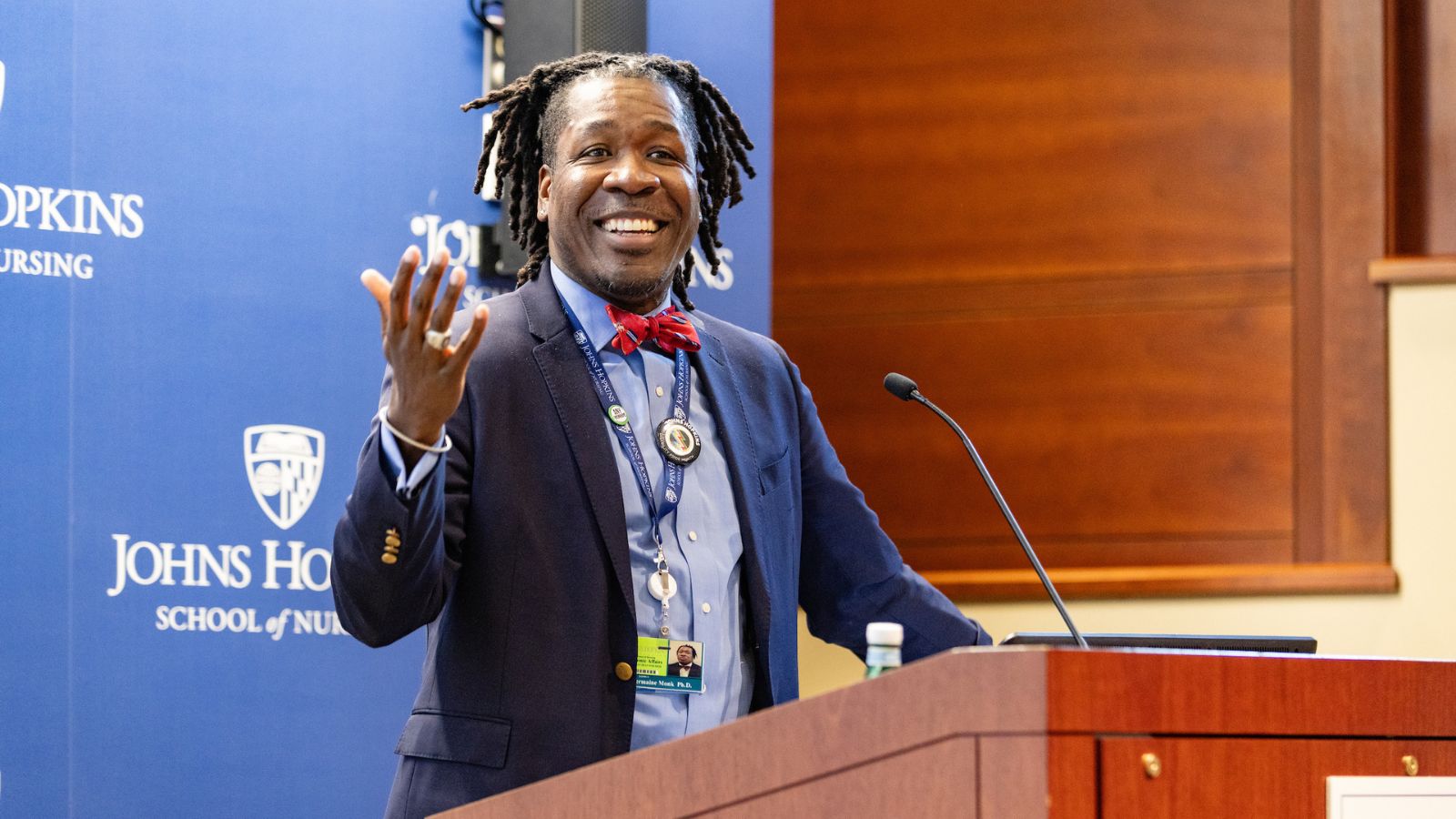Professor Emerita Fannie Gaston-Johansson, PhD, RN, FAAN, an internationally renowned educator and nurse researcher and the first Black woman to become a tenured professor at Johns Hopkins University, died of congestive heart failure January 7 at her home in Baltimore’s Mount Washington neighborhood, surrounded by family. She was 84.

Dr. Gaston-Johansson, a member of the Johns Hopkins School of Nursing (JHSON) faculty from 1993 until her retirement in 2014, focused her research on health disparities, pain management, end-of-life care, and coping strategies for women diagnosed with breast cancer. She is best known for developing the Pain-O-Meter, a tool to help patients find the right words to let clinicians know how much they are hurting.
“Dr. Gaston-Johansson led a remarkable career as a trailblazing scientist, a brilliant researcher who elevated nursing to its rightful place as a science, and as a leader in developing new methods to improve diversity, equity, and inclusion in academia,” remembers Dean Sarah Szanton, PhD, RN, FAAN. “She broke barriers, becoming the ‘first’ many times. … Students and colleagues have benefited from her experience, leadership, and commitment to inclusion.”
After growing up in Hickory, NC, and earning a bachelor’s in nursing from Winston-Salem State University, Dr. Gaston-Johansson joined Johns Hopkins as the next big step in a medical, teaching, and research career that included stops in North Carolina, New York, Texas, California, Nebraska, and Sweden, where she earned a PhD in nursing at the University of Gothenburg.
In 1998, she was promoted to full tenured professor, the first Black woman to earn that distinction in Johns Hopkins University’s history. She maintained her appointments at Johns Hopkins while also returning to the University of Gothenburg, where she served as a professor and then as dean from 2001 to 2005, dividing her time between Baltimore and Sweden.
“She was a woman and a colleague who set very high standards,” says JHSON Professor Emerita Phyllis Sharps, a colleague and friend to Dr. Gaston-Johansson for more than two decades. “She was a very strategic thinker and planner, and she didn’t give up easily—she was always committed to faculty, to moving them forward in both research and teaching.”
“As hard as she worked, she also enjoyed a good time, parties, music. … She was just larger than life, a giant who will be missed in nursing.”
Dr. Gaston-Johansson was also an advocate for students and oversaw the Minority Global Health Disparities Research Training Program, leading 160 students in finding solutions to health disparities and economic disadvantages across the world.
“She grew up in the segregated South, and during high school, she walked a mile each Sunday to babysit for a white family,” her son Christian Johansson, a member of JHSON’s Nursing Advisory Board, told the Baltimore Sun. “The family was so impressed with her that they offered to pay her college tuition on the condition that ‘if you see someone, you help them in some kind of way.’ It became her lifelong call to action.”
In May, the university named a high-profile faculty recruitment initiative in honor of Dr. Gaston-Johansson, a two-time recipient of the Johns Hopkins Diversity Recognition Award. The Fannie Gaston-Johansson Faculty of Excellence Program is part of a $50 million investment that focuses on the recruitment, retention, and advancement of faculty who demonstrate a commitment to diversity and inclusive excellence. The initiative will bring 30 diverse scholars to Johns Hopkins, with a concentration on areas where diversity among faculty has lagged and an emphasis on recruiting scholars in science, technology, engineering, and math fields.
Gaston-Johansson told the JHU Hub in May, “I think recruiting and promoting diverse faculty scholars makes such an important difference in how you talk to people, how you understand people, and how you treat them. I think you have to have a host of experiences coming together with students and faculty, that’s the way you really grow, not just educationally but socially, and you get a broader perspective on life.”
She served on the Maryland Governor’s Task Force on Healthcare Access and Reimbursement and received many awards, including the Links INC International Trends and Service Award, the National Black Nurses Association’s Trailblazer Award, Excellence in Nursing awards, and citations from the U.S. Congress for her research efforts. She was named a Living Legend of the American Academy of Nursing, was inducted into the Sigma Theta Tau Honor Society International Nurse Researcher Hall of Fame, and was an elected member of the Royal Academy of Letters, History and Antiquities in Sweden.

 Forging Policy: How Can Doulas Improve Black Maternal Health?
Forging Policy: How Can Doulas Improve Black Maternal Health? Q & A With Forensic Nurse, Michelle Patch
Q & A With Forensic Nurse, Michelle Patch You’re Welcome
You’re Welcome Dr. Robert Atkins, Anna D. Wolf Endowed Professor
Dr. Robert Atkins, Anna D. Wolf Endowed Professor Forging Policy: Associate Dean Jermaine Monk and Education After Affirmative Action
Forging Policy: Associate Dean Jermaine Monk and Education After Affirmative Action






